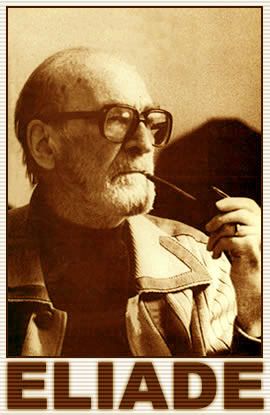
According to Eliade, modern man displays "traces" of "mythological behavior" because he intensely needs sacred time and the eternal return. Despite modern man's claims to be nonreligious, he ultimately cannot find value in the linear progression of historical events; even modern man feels the "Terror of history": "Here too [...] there is always the struggle against Time, the hope to be freed from the weight of 'dead Time,' of the Time that crushes and kills."
According to Eliade, this "terror of history" becomes especially acute when violent and threatening historical events confront modern man—the mere fact that a terrible event has happened, that it is part of history, is of little comfort to those who suffer from it. Eliade asks rhetorically how modern man can "tolerate the catastrophes and horrors of history—from collective deportations and massacres to atomic bombings—if beyond them he can glimpse no sign, no transhistorical meaning".
Eliade indicates that, if repetitions of mythical events provided sacred value and meaning for history in the eyes of ancient man, modern man has denied the Sacred and must therefore invent value and purpose on his own. Without the Sacred to confer an absolute, objective value upon historical events, modern man is left with "a relativistic or nihilistic view of history" and a resulting "spiritual aridity". In chapter 4 ("The Terror of History") of The Myth of the Eternal Return and chapter 9 ("Religious Symbolism and the Modern Man's Anxiety") of Myths, Dreams, and Mysteries, Eliade argues at length that the rejection of religious thought is a primary cause of modern man's anxieties.
Mircea Eliade

2 comments:
Eliade is a gurl.
In fact, the “terror of history” is one of Eliade’s trademark which includes all personal tragedy as well as dreadful current events on the world stage
“Terror of history” as experienced by the modern alienated man refers primarily to the “terror of irreversible” and it is the result of living in a homogenous space and time. The terror of history is “the feeling experienced by a man who is no longer religious, who therefore has no hope of finding any ultimate meaning in the drama of history, who must undergo the crimes of history without grasping the meaning of them”( Ordeal by Labyrinth:128). For him, the man of modern societies is totally desacralized because he “has recognized himself to be essentially, and sometimes even uniquely, a temporal being” for whom “the irreversibility and the vacuity of time has become a dogma”( The Forge and the Crucible:175-6).
Post a Comment